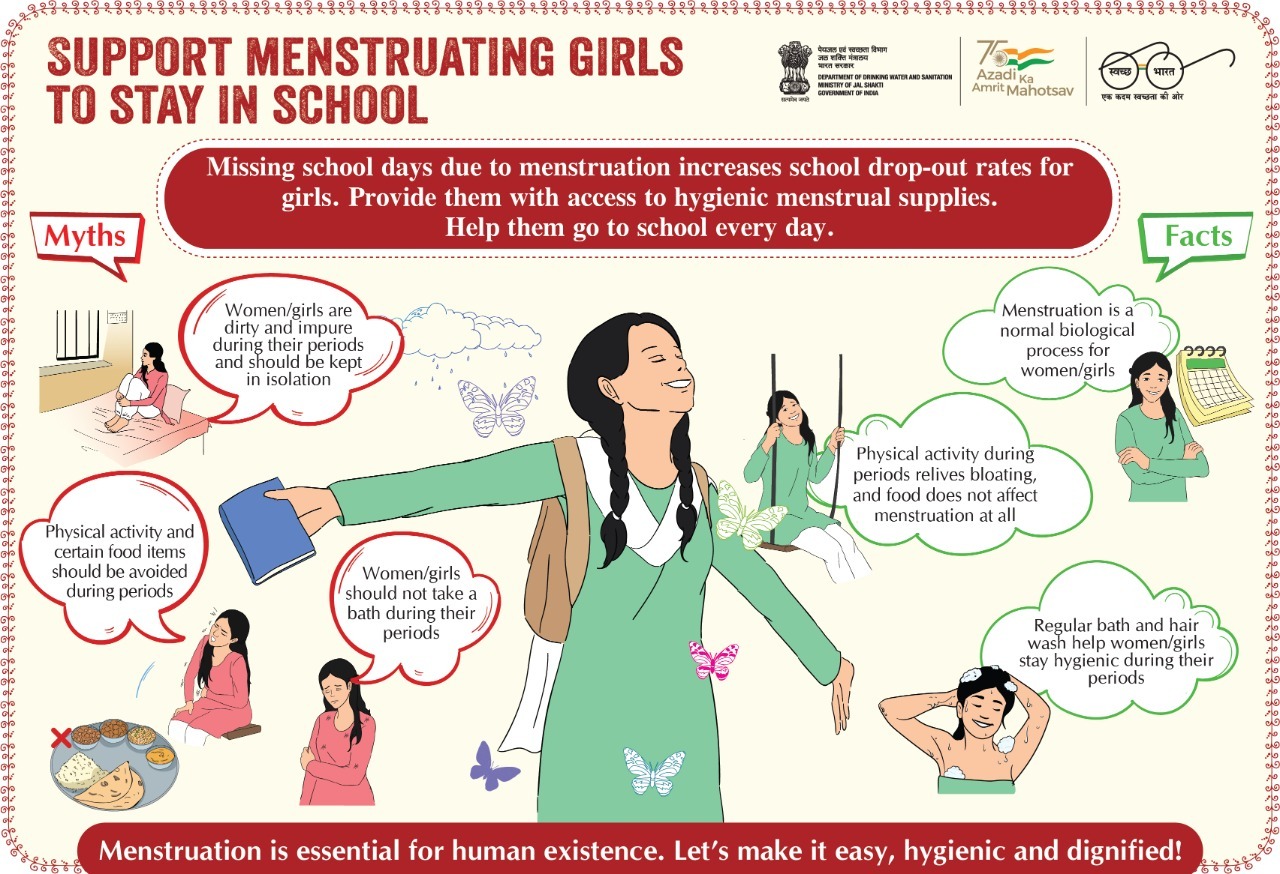Periods are normal and healthy, yet many menstruators across rural and urban India struggle to manage this monthly occurrence. When a menstruator faces obstacles in managing their menses in a healthy way, they are at a risk for infection, their self-esteem and self-confidence suffer, they may remain absent from school during their periods, or worse still, drop out of school altogether upon reaching puberty.
As a society, it is our responsibility to ensure that all women and girls have access to the knowledge, facilities, and materials required to manage their periods hygienically and safely. Unfortunately, this has not always been the case, and many women and girls in India still face significant challenges in menstrual hygiene management.


The lack of access to menstrual hygiene products, inadequate education, and stigmatization of menstruation have led to a public health concern in India. Women and girls from low-income backgrounds and rural areas are particularly vulnerable to reproductive health problems, infections, and social exclusion due to inadequate menstrual hygiene practices
Disposable sanitary pads are an essential aspect of menstrual hygiene management. They provide women and girls with a safe and convenient means to manage their periods. However, despite their effectiveness, access to disposable sanitary pads remains a significant barrier for many in India.
Statistics show that only one in three girls and women in India has access to disposable sanitary pads. Furthermore, only 36% of women in rural areas in India use sanitary napkins, with the remaining women using different methods such as cloth or rags. This lack of access to menstrual hygiene products leaves women and girls vulnerable to infections and other reproductive health problems.
Increased awareness and access to menstrual hygiene products, such as disposable sanitary pads, is critical to improving menstrual hygiene management in India. Efforts such as the National Rural Health Mission, the Pad Bank project, and the SheWings initiative have emerged and aim to provide education, awareness and access to affordable and safe sanitary pads for women and girls across the country.

Education About Menstruation Changes Everything.
FACTS
ASK
In India, only 1 out of 2 girls have knowledge about menstruation before their first period. In Tanzania and Ethiopia, only 1 out of 4 girls know about it before their first period.
In Ethiopia, 2 out of 3 girls do not receive education about menstruation at school.
In India, for 1 out of 2 girls, mothers are the most important source of information about menstruation, followed by friends.
In Uganda, 1 out of 2 girls report missing one to three days of school per month due to menstruation.
Provide education on menstrual hygiene, so that women and girls feel confident and are empowered to make informed decisions about how they manage their menstruation.
Integrate menstrual hygiene education into national school curricula, policies and programmes for adolescents.
Promote education for boys, men, mothers, teachers, health workers and other professionals, so they can help break negative social norms and provide accurate information and support.
Enable girls to stay in school by ensuring access adequate to hygienic menstrual products, toilets, water and disposal options.
Why Educating Girls Matters




